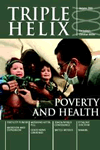This book is a paradox. It has an intensely relevant message that broadly states that we should not equate the healing ministry of Jesus with our own Christian healing ministry; his was unique. Jesus' healings were unique bacause they were more than just healings, indeed, they were even more than a signpost to the Kingdom. His healings actually demonstrated the initiation of the Kingdom. Even those who choose to disagree with his perspectives, which he backs up with closely reasoned argument from scripture, are challenged to examine whether our 'success rate' remotely compares with Jesus'. Moreover, he warns that scripture does not support those who claim that the problem today is lack of faith in those pray for healing. There is, in chapter 2, analysis of many relevant scriptural passages about healing, and the major themes of each passage are highlighted.
So far, so good, but what is the paradox? It is the style of the writing. I do not believe that this book was intended to be an easy read, but it does not need to be so obscure. The third sentence in chapter 1 is an example of the style Keith Warrington adopts: 'Claims today that, because Jesus healed, it is to be expected of believers that they emulate him, are to be critiqued in the light of this pedagogical dimension of the healings.' Another sentence: 'Nevertheless, the healings had valuable potential to stimulate a more developed faith in Jesus than to simply recognise in him a therapeutic agency of significant power'. I can grasp the overall meanings but I am not even sure that the second sentence makes sense.
So should one buy this book? I think it is a volume of great importance. But I do hope that Keith Warrington teams up with somebody from the Plain English Lobby and rewrites it. Then it will be even better.
Reviewed by:
Michael Harper
Medical Director of Burrswood Hospital, Kent































